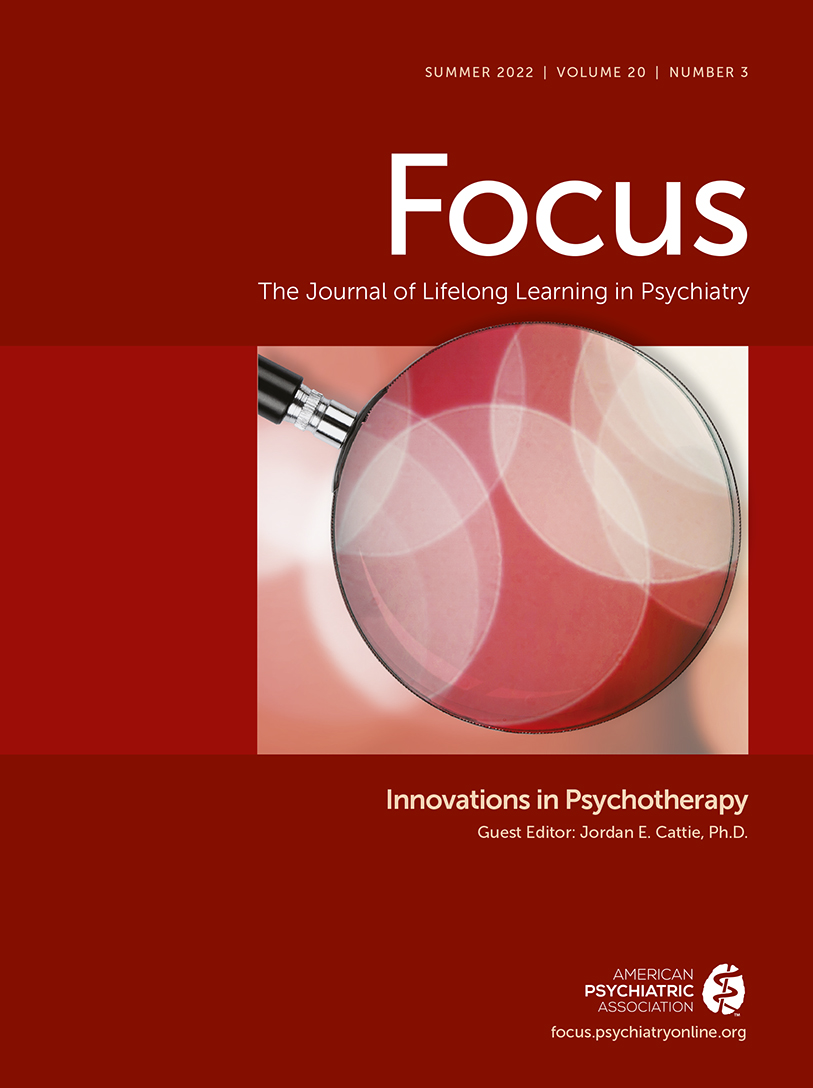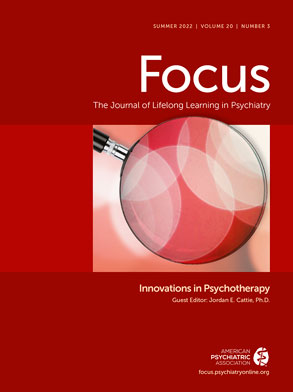(Reprinted from Lancet, Vol. 399, pp. 343–345, Copyright (c) 2021, with permission from Elsevier)
The COVID-19 pandemic has fuelled a global crisis of unmet needs for mental health care, particularly for mood and anxiety disorders.
1 Recently, the question of what should be the initial treatment choice for these disorders was thoroughly addressed by Furukawa and colleagues in a systematic review.
2 Their network meta-analysis of 81 randomised controlled trials, comprising 13722 adult participants with acute depressive episodes, compared psychotherapy, antidepressant medication, their combination, standard or usual care in primary or secondary settings, or a pill placebo on remission and sustained response and showed combined treatment or psychotherapy alone outperformed all comparators, and was equally effective.
2 In short, psychotherapy is the best initial treatment choice for depression.
Individual trials have consistently reported similar results for some time, yet these findings have had little impact on policy or practice. This not only represents another egregious example of how patients with mental health conditions are not being offered effective interventions, but also reflects the implicit hierarchy in which drugs and devices rule, even if they are not the best option for the patient. The exuberant response in the media and in psychiatry to new medications—eg, brexanolone, psilocybin, or ketamine for treatment-resistant depression—stands in stark contrast to the response to the long-standing evidence on the effectiveness of psychotherapy. Indeed, if only psychotherapy was a pill, it would have been a blockbuster drug.
But psychotherapy isn’t a pill and most people who would benefit from psychosocial interventions globally cannot access them.
3 Even in the USA, which has among the highest numbers of mental health practitioners per person in the world, of the one-third of adults with depression who receive any treatment,
4 only about a quarter receive psychotherapy.
4 This situation persists despite the fact that patients, particularly those from racial and minority ethnic groups, overwhelmingly express a preference for psychological therapies, and that patients who receive their preferred treatment report greater satisfaction, higher rates of treatment completion, and superior clinical outcomes than those who do not.
5–7It is in this context that the robust evidence on task-sharing of mental health care—ie, the delivery of psychosocial interventions by non-physician, community-based, front-line providers for a range of mental health problems
8,9—is potentially transformative. The interventions typically comprise a small number of core elements or active ingredients
10—eg, behavioural activation—that target psychological processes, are brief in duration and number of sessions—eg, the Healthy Activity Program comprises six sessions over 12 weeks
11—and are delivered in primary care or community settings.
12 Such interventions may also address social determinants that co-occur with mental health problems.
13 This robust evidence indicates that task-sharing of psychosocial interventions is the most important priority for mental health policy and practice. Crucially, this innovation is not a substitute for the existing mental health-care system, but serves to expand its footprint deep into the community to reach those whose needs are unmet.
There are many barriers to expanding access to evidence-based psychosocial interventions. The stratification of mental health practitioner disciplines and implicit hierarchies within mental health care position psychiatry over the other disciplines, such as psychology or counselling, and privilege medication and biomedical interventions. Historically, mental health specialists have been reluctant to widen the pool of providers to include a more diverse workforce or to adopt simpler, briefer versions of psychotherapy. There is also a concern that psychological therapies are based on studies of homogeneous samples of white patients who are seeking care from academic mental health centres and, therefore, these interventions may not generalise to more diverse populations.
14 The substantial body of evidence from diverse contexts around the world rebuts this concern.
9,12 In many countries, psychotherapy is available only in the private sector and reimbursement is limited, making psychotherapy more expensive than medication. Perhaps the most formidable barrier is insufficient commercial backing for psychotherapies. In healthcare landscapes where profits largely drive what is made available to patients, psychotherapies are unlikely to compete with pharmacotherapy, even if they outperform them. Thanks to these barriers, there are only small islands of successful scale-up at a national level, such as the Improving Access to Psychological Therapies (IAPT) programme in England.
15The global impact of the implementation science that shows the acceptability, feasibility, and effectiveness of task-sharing of psychosocial interventions in low-resource settings is evidenced by the growing demand for this delivery model in high-income countries.
16,17 A key challenge in all countries is how to train the large number of providers needed and assure the quality of their delivery of psychosocial interventions. Digital tools for the training and supervision of therapists offer a potential pathway to address this barrier. Apart from IAPT in the UK, such tools are also being used to scale up psychological treatments for eating disorders in multiple countries,
18 the Thinking Healthy Program for maternal depression in Pakistan,
19,20 and the Healthy Activity Program for depression in India.
11,21 EMPOWER, a not-for-profit programme which I lead, is building on this experience by deploying a suite of digital tools to help build the capacity of a community-based workforce to learn, master, and deliver brief psychosocial interventions. The programme has launched and is being implemented with community health workers in Madhya Pradesh, India, and in Texas, USA,
22 to deliver the Healthy Activity Program. These examples are a testimony to the commitment of implementers and philanthropic foundations towards the scale-up of task-sharing of psychosocial interventions in diverse contexts, but are insufficient to address the huge global unmet need for these interventions. It is time for health systems and governments to act too.
Acknowledgments
I am the leader of the EMPOWER initiative and acknowledge the support of the National Institute of Mental Health, the Wellcome Trust, the Surgo Foundation, the Natasha Mueller Foundation, the Tata Trusts, the Well-Being Trust, the Lone Star Prize, and Grand Challenges Canada towards the research on scaling up psychological treatments and EMPOWER. I thank Steve Hollon and Pim Cuijpers for their comments on an earlier draft of this Comment.

